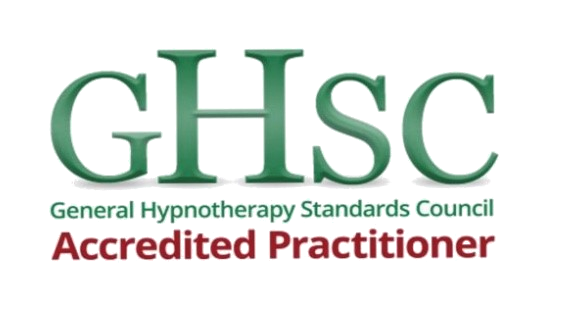How Do I Know if Cognitive Behavioural Therapy is Right For Me?
We know that finding the right therapist and booking an appointment can be a minefield in itself. It’s often confusing and difficult to understand the numerous options and approaches to therapy. At Think CBT we will offer you objective advice in the first instance and we will only undertake therapy with you if we are confident we can help. If we cannot help you or if there is a better approach, we will suggest an alternative course of action. We are often shocked when clients tell us about spending years in other forms of therapy without really achieving any tangible changes. We believe that we have a professional responsibility to work ethically with our clients which means helping you to achieve sustainable change as quickly and cost-effectively as possible.
What Can I Expect from Cognitive Behavioural Therapy?
If you choose to book an appointment with Think CBT, you can expect to work with a fully qualified and professionally accredited expert in Cognitive Behavioural Therapy. You can rely on a completely confidential approach, specifically designed to meet your personal needs. As a private client you will be treated with dignity and respect and you won’t be asked to fill in unnecessary paperwork or join a long waiting list.
What is Cognitive Behavioural Therapy?
Cognitive Behavioural Therapy (CBT) is a highly structured, time focused and practical approach to overcoming a wide range of psychological, emotional and behavioural problems. It does this by identifying and changing unhelpful connections between negative thoughts, behaviours, emotional and physical reactions. Unlike many of the other passive counselling approaches, CBT is specifically focused on altering the patterns of thinking and behaviour that cause and maintain the problem.
What Does CBT Involve?
CBT involves working with a psychotherapist to understand and change the different factors that keep the problem going. This usually involves undertaking an initial assessment, producing a clear therapy plan and attending weekly sessions where you will learn new techniques to tackle the problem. Unlike some of the other passive counselling approaches, the psychotherapist will help you to set specific goals, develop a clear understanding of the problem, produce a structured therapy plan, teach you how to use CBT techniques and monitor your progress on a weekly basis. CBT is all about problem solving and change. It provides a safe and confidential space to explore the issue, but it then focuses on what can be done to change or improve the factors that cause distress and limit your potential.
How Does CBT Work?
We know that our emotional and physical reactions to different situations are influenced and affected by our thoughts or cognitions and by our behaviours or actions. This means that patterns of unhelpful thinking and behaviour can lead to emotional distress and physiological problems. These unhelpful thinking and behavioural patterns have been specifically linked to a wide range of psychological and emotional problems including anxiety, depression, OCD, social phobia, panic attacks, eating disorders, PTSD, low self-esteem, insomnia, phobias and mood problems. CBT works by mapping out these links and identifying unhelpful patterns of thinking and behaviour that keep the problem going. By altering these often deeply rooted patterns, profound changes can take place that help us to think, feel and act in a way that is less distressing and consistent with what we want in our lives. These changes have been demonstrated through numerous clinical trials and have even been observed as neurological and biochemical changes in the brain and body. This reinforces the principle that the mind and body are closely linked and that changing our mind can profoundly influence how we feel and act on a physical level as well as emotionally.
How Long Does CBT Take?
Cognitive Behavioural Therapy is a time-focused approach to understanding and overcoming the problem. This means that you will agree specific goals with your therapist and time scales for completing the different aspects of your therapy plan. Unlike other forms of therapy, CBT is not open-ended and you will normally agree a therapy plan with a specified number of sessions. Although it depends on the nature and complexity of the problem, CBT typically takes four-twenty sessions and you will agree and review progress with your therapist as you move through the process.
What Does the Research Evidence Show?
The research evidence shows that CBT is highly effective in the treatment of a wide range of psychological, emotional and behavioural problems. Evidence from numerous clinical trials, consistently demonstrates that CBT is more effective than other forms of therapy and counselling, matching and outperforming antidepressant medications for anxiety and depression. According to the Royal College of Psychiatrists, CBT is “The most effective psychological treatment for moderate and severe depression,” “It is as effective as anti-depressant medication” and “It is one of the most effective treatments where anxiety and depression is the main problem." CBT is endorsed by the Department of Health, National Institute of Health and Clinical Excellence (NICE), British Psychological Society, Royal College of Psychiatrists, Royal College of General Practitioners and the UK Council for Psychotherapy (UKCP).
If you have a specific question about how Cognitive Behavioural Therapy works in relation to your problem, you can contact us by emailing info@thinkcbt.com We can send a reply or organise a free telephone consultation to talk about your options.
![]() There are many psychotherapists and counsellors offering cognitive behavioural therapy. Always ensure that your therapist is professionally accredited with the British Association of Behavioural and Cognitive Psychotherapy (BABCP).
There are many psychotherapists and counsellors offering cognitive behavioural therapy. Always ensure that your therapist is professionally accredited with the British Association of Behavioural and Cognitive Psychotherapy (BABCP).









